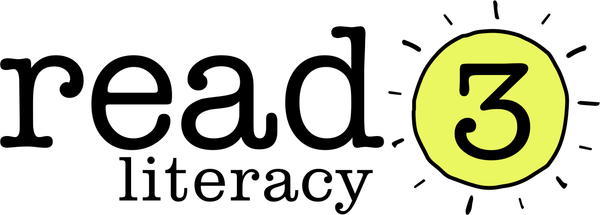Progressive Phonics decodable readers support children with fluency difficulties
|
|
In addition to our 3-step daily routine, Read3 recommends all children practise their new-found skills using decodable readers. However, for children with fluency challenges, continuously decoding word after word can be exhausting!
That's where Progressive Phonics can help.
Progressive Phonics is a wonderful FREE website that provides children with the opportunity to practise decoding skills in a fun, less confronting way.
If you have a child who struggles to build fluency, or has rapid naming difficulties in particular, we highly recommend you take a look at their New Alphabetti Books and Beginner Readers. You can download PDF versions or just read them straight from your tablet or phone.
What is rapid naming?
Rapid Automatic Naming (RAN) relates to how quickly our brain can retrieve known information. If this processing skill is weak, then it can be very difficult for a child to continually pluck the right sound or word from memory. Even though they may know it, they can't access it quickly enough. As a result, reading can be very laboured and frustration levels can be very high!
Click HERE if you need more info on how RAN impacts reading.
Read red words only
In Progressive Phonics books the child only reads part of the text. The decodable words (to be read by the child) are highlighted in red and the remaining text (to be read by the adult) is black. Many of the stories use rhyme which adds to the child's engagement and helps build awareness of rhyme endings - an important phonological skill for beginner readers.
For children with weak RAN, being required to just read just a few words per page can be a real game changer. It really takes the pressure off as they can 'prepare' for each word, and enjoy the success of decoding, rather than feeling constantly frustrated when words they know just won't come out correctly...
Now read red and blue words
As you progress through the phonic series, the number of words the child will read per page increases - words they have already learned to decode are marked in blue and new words are red.
Scope and sequence
The Progressive Phonics sequence is very similar to the Read3 sequence so is a great way to start to build confidence in your little reader. You will need to teach the sound c (as in cat) before commencing as the main character is a cat.
Ensure decoding strategies are consistent
A word of warning: each file includes additional information and activities relating to letters, sounds, and letter formation. Please skip over these pages and proceed straight to the stories. The evidence-based strategies offered through Read3 and the Easy Alphabet are designed to support children with a range of processing difficulties. As is the case with most decodable resources, the strategies outlined in these booklets relate to beginner readers more broadly, not specifically to struggling beginner readers.
Encourage your child to chunk words into onset (starting sounds) and rime (from the vowel to the end of the word) to help build automaticity of natural patterns in words and improve reading fluency.
Recap letter-sound knowledge as needed
If additional support is required with letters and sounds, be sure to recap using the Easy Alphabet Practice Sheets and Playing Cards included in the program. Login and download resources as required.
Want to match Progressive Phonics titles to Read3 Sequence? Register below!
A detailed list of which titles match which steps of the Read3 program is now available. If you'd like to receive a copy, enter your details below and we'll email it to you. 😊
Register


1 comment
I put the wrong email, typo
karafmurray@hotmail.com